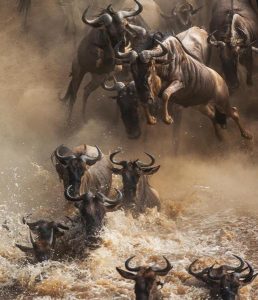Congratulations! You’ve booked your dream trip for a safari in Africa. Amid the anticipation and excitement, you may also have a lot of questions – not least of which is, “What should I take along?” Here, we ‘unpack’ some basic suggestions to keep in mind, before detailing the essentials for all members of the family. Going on safari is a little different from your typical holiday, so take note of the following and avoid possible problems once you’re there.
Limited Luggage
While most airlines have luggage restrictions, be sure to check with your tour operator whether there are any further restrictions at your destination. Often you will get to your camp in a light aircraft, and in most cases, these require that your luggage be limited to a soft-sided duffel bag without wheels (with a weight restriction) and one piece of carry-on luggage. The air charter companies are not flexible on this requirement. If your journey involves road transfers, there are fewer limitations but try to keep your luggage to a minimum. We also suggest having a daypack to carry your valuables, important documents and other essentials and keep this with you at all times. If you are going on to another destination, or your luggage exceeds what is allowed, inquire with your tour operator as to whether they offer a left-luggage service.
Weather
Your safari will take place in either the wet or dry season. That is not to say that it won’t rain in the dry season – so be prepared for all eventualities. The best guideline is to pack clothing for all weather conditions, with the option of layering your clothing so you can adjust to the ambient conditions. It can get very cold on morning game drives in open vehicles, so a light down jacket/fleece, gloves and a beanie is a great idea. There are often blankets and ponchos on the safari vehicles. Consult your tour operator on any weather-specific questions you may have.
Sun Protection
Do not underestimate the African sun. Apply high-SPF sunscreen before all activities, and re-apply regularly. Wear a wide-brimmed hat. Polarized glasses will protect your eyes from glare. Keep after-sun lotion available to treat sunburn and stay hydrated.
Camera Gear & Electronic Devices
If you have a lot of camera equipment, it is best to confirm that you will be able to travel with it prior to departure (see Limited Luggage above). In general, cell phone cameras are not sufficient for wildlife photography. If you are not a serious photographer, we suggest a so-called bridge camera, which is compact with good zoom capabilities. Don’t forget to pack charging equipment, extra memory cards and spare batteries. While some camps offer the use of binoculars, you might want to have a pair per person in your group. Drones are forbidden in all national parks unless specifically permitted by authorities. You might also consider taking along an extra cell phone for use with a Tanzanian sim card. This will significantly reduces costs for local use.
Destination-Specific Equipment
Consider the type of activities you will do on safari and whether you will require special equipment. Check with your tour operator whether they have any recommendations.
Clothing




In general, a safari holiday is informal, so there is no need to pack a different outfit for every day. Limit yourself to one smart-casual outfit, if desired. Quick-drying fabrics are best, as well as items colored in neutral earth tones (brown, gray, green), especially if you will do a walking activity. White clothing, as well as bright or fluorescent colors should be avoided. Plan to layer your clothing so you can adjust for temperature changes. Dresses and skirts have practical limitations on safari. Officially, it is suggested that visitors refrain from wearing clothing that is revealing or made of camouflage-patterned fabric, although in practice, this is generally left to personal discretion. Pack a pair of comfortable walking shoes and sandals/flip-flops. Ask your tour operator for more information about clothing if you are trekking (e.g. Kilimanjaro).
Laundry
Most but not all camps will have a basic laundry service available, however, quick-drying fabrics that do not require ironing are best. You may be required to wash your own underwear.
Insect Repellent
Insects, including biting flies and mosquitoes, are a fact of life on a safari. You will need insect repellent, medication for stings and allergies, and long-sleeved shirts and trousers to wear in the evenings. Consult your medical practitioner or travel clinic about the appropriate anti-malaria medication and follow usage instructions carefully.
Medication
Ensure that you have an adequate supply of any prescription medication for the duration of your trip. If you have allergies, carry the appropriate treatment with you at all times. Pack a small first aid kit (detailed below), in case of emergencies. Ensure your vaccinations are up-to-date and have copies of relevant vaccine certificates.
Diet

If you have special dietary requirements, be sure to advise your tour operator in advance and ensure they convey these to the various destinations you plan to visit. Most special diets can be accommodated with advance notice. Also, state food allergies.
Documents
All travel documents should be kept safe and on your person at all times; including passports, travel arrangements, vouchers and related documentation. If possible, store a backup on a cloud service or portable storage device and take photocopies of your passport, tickets and vouchers.
Cash & Valuables
Take sufficient US Dollars in various denominations for gratuities and other incidental expenses. We suggest that the bulk of your actual travel expenses (e.g. accommodation and transfers) be prepaid. Divide cash into smaller amounts and store separately in case of theft. Do not take expensive jewelry and avoid displaying other valuables (camera, phone, tablet) where possible.
Insurance
Ensure that you have adequate insurance (including travel insurance that covers medical repatriation), and keep relevant contact details at hand. Make sure your next of kin has copies back home.
Traveling with Children

Provide children with an activity pack (toys, books, iPad/tablet etc.) to keep them occupied in case of lengthy travel or delays. As internet access can be erratic in Tanzania, be sure to download games, music etc. so that it can be accessed without wi-fi. Bear in mind that game drives are several hours long. Ask your tour operator if your destinations offer qualified child-minding services or other child-friendly programs. If you have an infant/toddler you will need your baby carrier and a portable baby monitor. You will not be able to find most baby products on safari, so you will have to carry a sufficient supply.
Travel for Seniors

Notify your tour operator of any specific mobility issues, if applicable. Safaris are generally a senior-friendly holiday but it is best to have a checkup prior to travel. Utilize the option of advising your tour operator of underlying medical conditions.
Checklists
The following are detailed lists of what to pack for your safari. Be careful not to over-pack but still have sufficient for the duration of your holiday. Weight and size of packed luggage are key considerations – and you might want to leave space for souvenirs to take home.



Adult Luggage
- If your transportation during your tour is by road transfer, you should limit yourself to one suitcase/duffel bag per person.
- If transportation includes traveling by light aircraft, then one soft-sided duffel bag without wheels.
- Make sure all pieces of luggage are secured with luggage locks.
- One small backpack (daypack) or handbag (not both)
Adult Clothing (Per Person)
Remember to keep layering of clothing and neutral colors in mind.
- Wide-brimmed hat (for sun protection)
- Sufficient underwear
Socks (Hiking socks if you will be doing long walks) - Sleepwear (if desired)
Belt - 2x Trousers (preferably with zip-off legs)
- 2x Shorts (knee length are recommended and only if you do not have zip-off trousers)
- 3x Long-sleeved shirts (with collar for sun protection)
- 1x Long-sleeved and short-sleeved T-shirt
- 1x Sweater/Jersey
- 1x Light down jacket/Fleece jacket
- 1x Lightweight wind and a waterproof jacket (Windbreaker)
- 1x Fleece Beanie/Toque
- Light gloves, buff and/or scarf are useful in Winter
- Closed, comfortable walking shoes (if trekking, you will need worn-in waterproof hiking boots).
- Sandals/Flip-flops to wear around camp
- Toiletry bag with personalized contents
- Bag for wet clothing
- Micro-fiber (quick-drying) towel
Notes:
- Dresses and skirts are normally impractical on safari activities, but you may pack one for a special occasion if desired.
- If you use compression socks or other specialist clothing, pack this too.
- Senior travelers can consider taking a portable chair
- Remember – NO camouflage clothing!
Gadgets & Accessories
(pack as applicable to yourself)
- Powerbank
- Camera
- Small bean bag (for camera stability)
- Lightweight tripod (optional)
- Memory cards and other storage devices
- Chargers for all devices
- Plug adaptors and power-strip/multi-adaptor (For Tanzania there are two associated plug types, types D and G. Plug type D is the plug which has three round pins in a triangular pattern and plug type G is the plug which has two flat parallel pins and a grounding pin. Tanzania operates on a 230V supply voltage and 50Hz.)
- Binoculars (per person) – 8-10×42 optics are recommended
- Tablet and/or Kindle (or a book to read)
- Small torch or headlamp
- Journal
First-Aid Kit
- Paracetamol
- Anti-allergy medication and ointments
- Band-Aids
- Disinfectant
- Tweezers & scissors
- Eye drops
- Antihistamine ointment/tablets
- Heartburn and indigestion medication
- Prescribed prophylaxis for malaria
- Stomach medication for diarrhea and constipation
- Hand sanitizer
- Epi-Pen (if applicable)
- Medical Alert
- Information (if applicable)
Adult Daypack Contents
Travel Documents (Passport, vouchers, vaccine certificates etc.)
Prevention Kit
- Hydrocortisone or calamine lotion (for insect bites and skin irritation)
- Mosquito repellant
- Sunblock
- Motion-sickness tablets or wristbands
- Paracetamol
- Prescription medication for the day
Other Essentials
- Power bank
- Binoculars
- Hand-sanitizer, tissues, sanitary wipes
- Feminine hygiene products
- US Dollars cash in various denomination for tips and incidental expenses
Children’s Luggage
- One soft-sided duffel bag without wheels, with luggage locks
- One small backpack (daypack)
Children’s Clothing (Per Person)
- Sufficient underwear
Socks (including for walking) - Sleepwear/Pyjamas
Wind and waterproof jacket - Zip-off type trousers
- Shorts and T-shirts (Fast drying fabrics)
- Light fabric long-sleeved shirt and pants for the evening – to protect from mosquitoes.
- Swimwear
- Wide-brimmed hat or cap
- Fleece Beanie/Touque
- Light gloves, buff and/or scarf are useful in Winter
- Closed shoes suitable for walking
- Sandals/Flip-flops
- Toiletry bag with personalized contents
- A big bandana/multipurpose muslin to cover for the sun, use as a mat etc…
- Travel soap
- Diaper bag packed with extra clothes, sufficient diapers, diaper bags, changing pad
Children’s Daypack Contents
Prevention Kit
- Hydrocortisone or calamine lotion
- Insect repellent and mosquito patches
- Sunblock
- Motion-sickness medication/wristbands
- Lip balm with SPF
- Tissues or wipes
- Hand sanitizer
Other Optional Items
- A small digital camera or InStax (instant photos for their scrapbook)
- An underwater or waterproof camera if visiting the beach
- Binoculars (preferably one pair per child)
- Activity book, notebook and checklists
- Tablet (with games etc. downloaded and headphones)
- Small toys
Gadgets & Accessories
(pack as applicable to your child)
- Baby monitor
- Reading material for night-time stories
- Headlamp or torch
- Binoculars (it is better for each of the children to have their own set)
- Chargers and spare batteries
- Luggage locks
- Power bank
- Copies of all passports and travel documents (including travel insurance and visas)
- A small blanket (if your younger child wishes to wrap up on game drive or around the campfire in the evening)
- Water bottle
- Snuggle cushion for traveling
- Small beach toys if relevant (bucket and shovel)
- Back-up pacifiers (attachable to clothing)
- Fan or a battery operated/rechargeable mini fan
- Emergency snacks – if your child has particular tastes, you can consider bringing a supply as many ‘western’ foods are not available in Tanzania
- Travel baby utensils and bib if applicable
First Aid Kit for Children
Some items may be duplicated in the adult list.
- Band-Aids
- Bandages
- Thermometer
- Age-appropriate paracetamol
- Tweezers
- Disposable gloves
- Eye-wash/eye bath
- Hydrocortisone cream or calamine lotion for stings
- After-sun lotion
- Burn dressing
- Antibacterial ointment
- Yellow Fever vaccination cards
- Chewable probiotic tablets
- Motion sickness pills if required (for flying on small aircraft)
- A broad-spectrum antibiotic
- Anti-malaria medication (as prescribed by your healthcare practitioner)
- Insect repellant
- Anti-nausea or diarrhea medication
- Antihistamine cream (for bites) and tablets for any allergies
- Epi-Pen (if applicable)
- Antiseptic cream
- Rehydration sachets
- If you are doing a lot of walking, bring muscle rub or anti-inflammatory cream
- Remember to alert your hosts to any allergies the children may have at the start of your safari, and keep any emergency medication easily available if it must be taken immediately.
The above is our basic guideline on what to pack – but you can modify this as desired, keeping in mind the non-negotiables. You will inevitably end up having to handle your luggage at some point, so keep that in mind before you over-pack. And spare a thought for the porters too.
If you are in doubt, please contact your tour operator or Gosheni Safari for further guidance.



